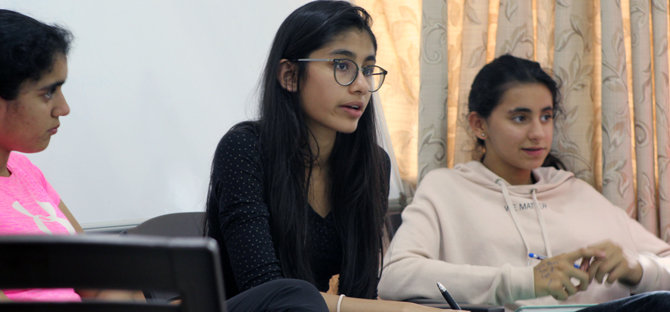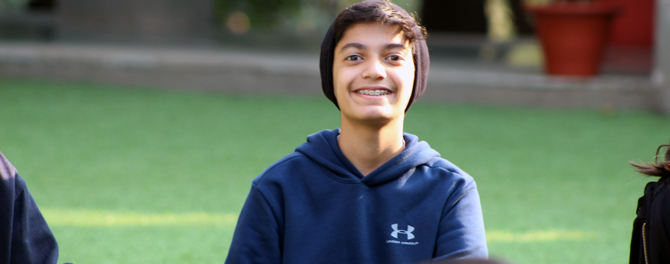Every year, we host a program in India that brings the Seeds of Peace Camp experience to those who may otherwise never set foot in Maine.
For six days, 50 young leaders from different religious and cultural backgrounds build relationships with one another, engage in facilitated dialogue, and form alliances beyond traditional identities at our annual Interfaith Camp, located 150 miles outside of Mumbai.
At the core of the camp is a deepening of one’s self-awareness about their faith. It provides a space where teens can ask themselves a range of questions: What does my faith mean to me? How much of my faith is mine, and how much of it is imposed or borrowed? How much does it defines me? How much is it expressed in my actions? When am I in conflict with my religious identity? What are my prejudices against other religions?
Early in the week, we did a dialogue activity that brought up a well of emotions. Like dominos, each participant’s guard fell one after another, yielding to vulnerability and deep sharing. You could see the release of tension in their bodies—it was physically therapeutic for them. The kind of trust that was built by the bonding they experienced in just one hour was magical.

During this activity, one girl who started weeping said it was the first time she had shed tears in over four years. For so long, she told us, she had this toxic idea that to be “strong” meant burying her emotions, telling herself, “I won’t cry, I won’t cry, I won’t cry.” Until that moment, she had not even processed how much she had closed herself off to life—of how little faith she had in her inner strength, or in the richness and complexity of her own feelings.
At first, she thought she was crying out of a feeling of helplessness. But as she continued to share and explore over the course of the camp, she realized she was feeling overwhelmed by the fact that she felt more comfortable and safe crying in front of people she had met only six days before than with some of her closest friends back home. She had never expected to be able to trust and become so attached to people that she had just met.
To me, this reinforced the need for empathetic spaces where young people can share bravely, and the special power that they hold. There’s such a lack of these spaces in society, places where people can go deeper and explore their identities in ways they can’t elsewhere, without fear of judgment or shame.

If there is just one thing that these incredible teens take away from the camp, I hope it’s a widening of their understanding of the term “faith.” When they arrive, participants think faith is interchangeable with religion. But while religion is cultural and shared, faith is uniquely personal. You can express yourself and your faith in a sport that you play, in the skills you have, in the life choices you make, the clothes you wear, the food that you eat. To explore the totality of your faith is to explore the totality of yourself.
I also hope participants leave with an understanding of the asks each person has of other faiths. If I practice Jainism, for example, rather than try to impose my belief or lifestyle on a meat-eater, I can learn to appreciate that what works for me, works for me. Rather than being mad at someone else for eating meat, I recognize that we are different people, with unique histories, religions, experiences. There are reasons why people have a certain kind of diet different from mine.
In that sense, the entire camp is about moving from tolerance to appreciation: appreciating why a diversity of beliefs is needed to create a strong, engaged community of changemakers, and celebrating that diversity even if you don’t agree with every part of another’s beliefs.
I will always be grateful that, through my role in the Interfaith Camp, I can provide this much-needed space for growth and reflection.

